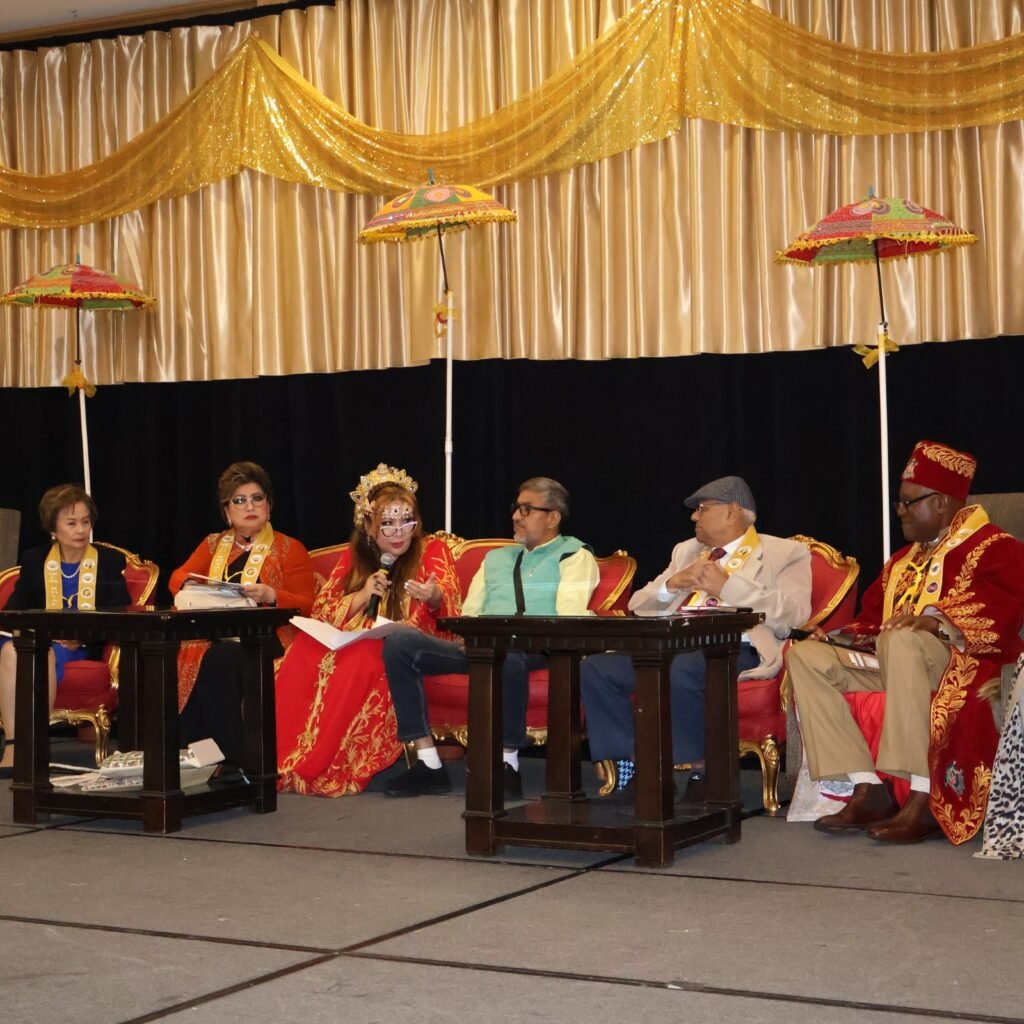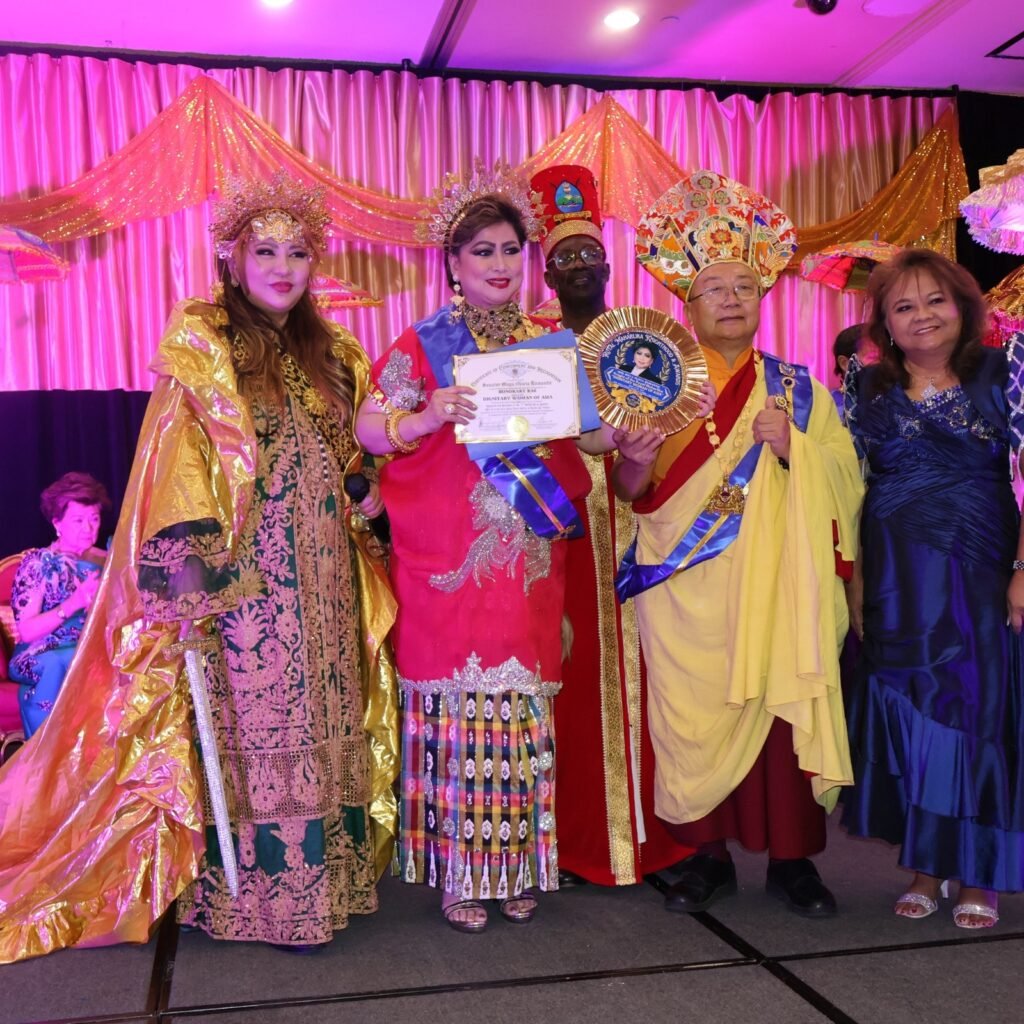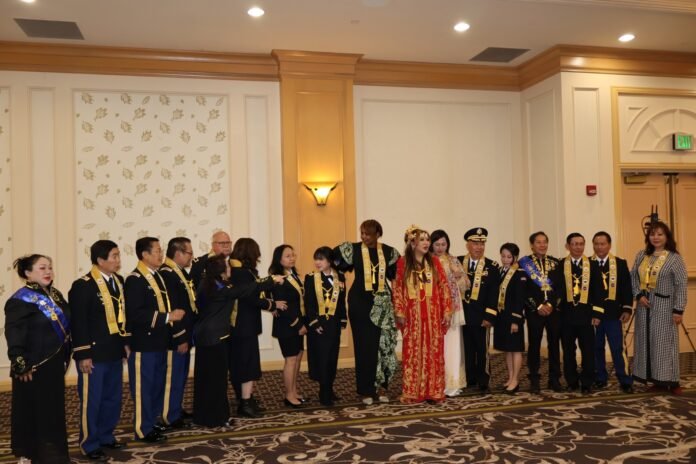Overview of the 7th WCH Royal Summit
The 7th World Cultural Heritage (WCH) Royal Summit took place on May 28, 2025, in the vibrant city of Las Vegas, Nevada. This summit was uniquely organized by We Care for Humanity in collaboration with the Royal Maharlika and the Sultanate of Maguindanao, receiving additional support from the Philippine Honorary Consulate based in Las Vegas. The convergence of these esteemed organizations highlights the event’s commitment to fostering humanitarian initiatives on a global scale.
The primary objectives of the summit included raising awareness of pressing humanitarian issues, fostering collaboration among stakeholders, and promoting sustainable development practices worldwide. Through a series of panels, workshops, and keynote speeches, participants engaged in critical discussions aimed at addressing challenges faced by marginalized communities. Focused heavily on the future of humanitarian efforts, the summit sought to transform ideas into actionable solutions that could be implemented across different cultures and societies.
Among the event’s key highlights was the presence of influential leaders, philanthropists, and humanitarian advocates from various sectors, who shared their insights and experiences. The richness of the cultural backdrop provided by Las Vegas, a city known for its diversity and resilience, served not only as an entrancing location but also as a symbol of what communities can achieve when they come together for a common goal. The summit embraced the spirit of collaboration, emphasizing that collective action is essential in enhancing humanitarian initiatives worldwide.
Ultimately, the 7th WCH Royal Summit has laid an influential framework for ongoing discussions and collaborations. The event’s significance extends far beyond its immediate outcomes, as it sets the stage for understanding the profound impact of global humanitarian efforts and the pathways to progress that lie ahead.
Key Achievements and Announcements
During the two-day event of the 7th WCH Royal Summit, prominent global leaders gathered to deliberate and advance critical humanitarian initiatives. This summit not only served as a platform for discussions but also marked significant achievements aimed at alignment in addressing pressing humanitarian challenges worldwide. The event featured a series of major announcements, agreements, and new collaborative projects intended to enhance global strategies toward humanitarian goals.
One of the most noteworthy outcomes of the summit was the establishment of a new international framework for humanitarian response. This framework aims to facilitate better cooperation among nations and organizations, ensuring more efficient allocation of resources and support to affected regions. Participants unanimously recognized the importance of shared accountability and commitment, which was echoed in various testimonials from leaders expressing optimism about the future of global humanitarian assistance.
Furthermore, the summit introduced innovative initiatives focusing on sustainable development, particularly in areas heavily impacted by natural disasters and conflicts. Among these initiatives was the creation of a global fund designed to support grassroots organizations that provide essential services to vulnerable communities. This fund is expected to empower local entities, ensuring they have the necessary resources to address immediate needs while also contributing to long-term recovery efforts.
In addition to new frameworks and funding, the summit shed light on various successful case studies from member nations, showcasing effective strategies implemented in recent humanitarian crises. These discussions provided valuable insights into best practices that could be replicated worldwide, fostering a sense of optimism and unity among attendees. The collective commitment observed at the 7th WCH Royal Summit clearly illustrates the potential for collaborative efforts to create lasting change in humanitarian practice and policy.
Global Leaders in Attendance: Influence and Perspectives
The 7th WCH Royal Summit attracted a diverse array of influential global leaders, representing sectors that significantly contribute to humanitarian initiatives. Among the notable figures in attendance were prominent philanthropists, and leaders from various non-profit organizations and private enterprises. Their collective presence underscored the summit’s importance as a platform for dialogue on pressing global issues related to humanitarian efforts.
Among the distinguished attendees, who emphasized the need for coordinated efforts to address the escalating challenges posed by climate change and its impact on vulnerable populations. They articulated a vision for collaborative governance, urging other leaders to adopt a more integrated approach to humanitarian policy that involves cross-sector partnerships. This perspective resonated deeply with many participants, fostering a sense of shared responsibility among nations.
Furthermore, leaders from top non-profit organizations highlighted the necessity of grassroots engagement in humanitarian initiatives. They shared compelling stories of how community-driven programs have successfully improved the lives of those in need. These experiences served as powerful case studies demonstrating the importance of localized approaches within the broader humanitarian framework. The discussions provided invaluable insights into innovative strategies that can enhance the effectiveness of global humanitarian efforts.
Networking opportunities at the summit were plentiful, allowing participants to forge new partnerships and collaborations. Informal discussions during breaks often led to the formation of alliances between sectors, showcasing the potential for combined efforts that leverage unique strengths. As leaders exchanged ideas and resources, there was a palpable sense of momentum towards revitalizing global humanitarian initiatives guided by the fresh perspectives shared during this significant event.
Looking Ahead: The Future of Humanitarian Collaboration
The 7th WCH Royal Summit has set a noteworthy precedent for international humanitarian efforts, laying the groundwork for enhanced collaboration among nations and humanitarian organizations. The summit emphasized the necessity for cohesive strategies to address complex global challenges, ranging from refugee crises to climate change impacts. As we move forward, it is essential that the momentum generated at this event translates into actionable steps that can be embraced by various stakeholders.
One of the pivotal outcomes of the summit was the commitment to establish a robust framework that prioritizes continuous dialogue and partnership among leaders from different sectors. By fostering an environment where ideas and resources can be shared seamlessly, countries can innovate and implement effective strategies tailored to their specific humanitarian needs. Such collaborations will not only amplify the impact of ongoing projects but also create opportunities for new initiatives designed to tackle emerging challenges.
Investment in technology and data sharing emerged as crucial components to improve efficiency within humanitarian operations. The utilization of modern technology can facilitate real-time response mechanisms and improve the monitoring of aid distribution, thereby enhancing accountability. As nations pledge greater transparency in their humanitarian endeavors, trust and cooperation among partners can be solidified, ultimately leading to more effective solutions.
Moreover, the summit underscored the importance of engaging local communities in humanitarian efforts. Localized approaches ensure that interventions are culturally sensitive and address the actual needs of populations affected by crises. By empowering local actors, the international community can better harness their insights and expertise, which is vital for sustainable development in humanitarian contexts.
Looking ahead, the commitment to nurture the spirit of collaboration initiated at the 7th WCH Royal Summit will be vital in overcoming global humanitarian challenges. The shared determination to work together as a united front will bring about meaningful change, fostering resilience and a collective responsibility to support those in need across the globe.





